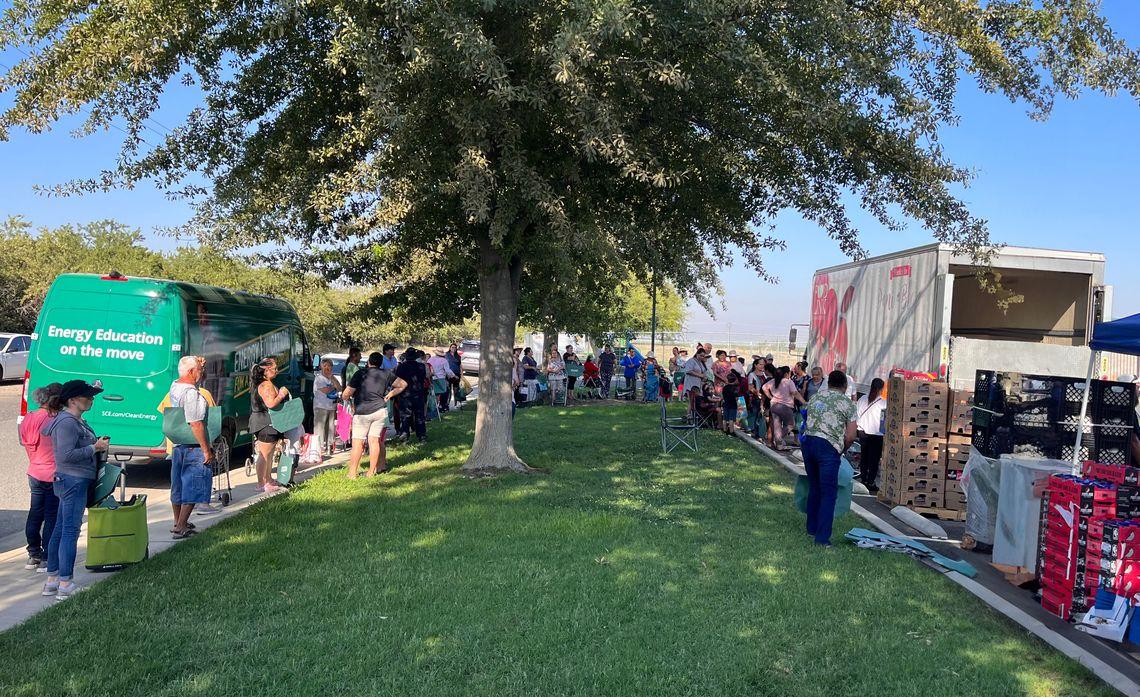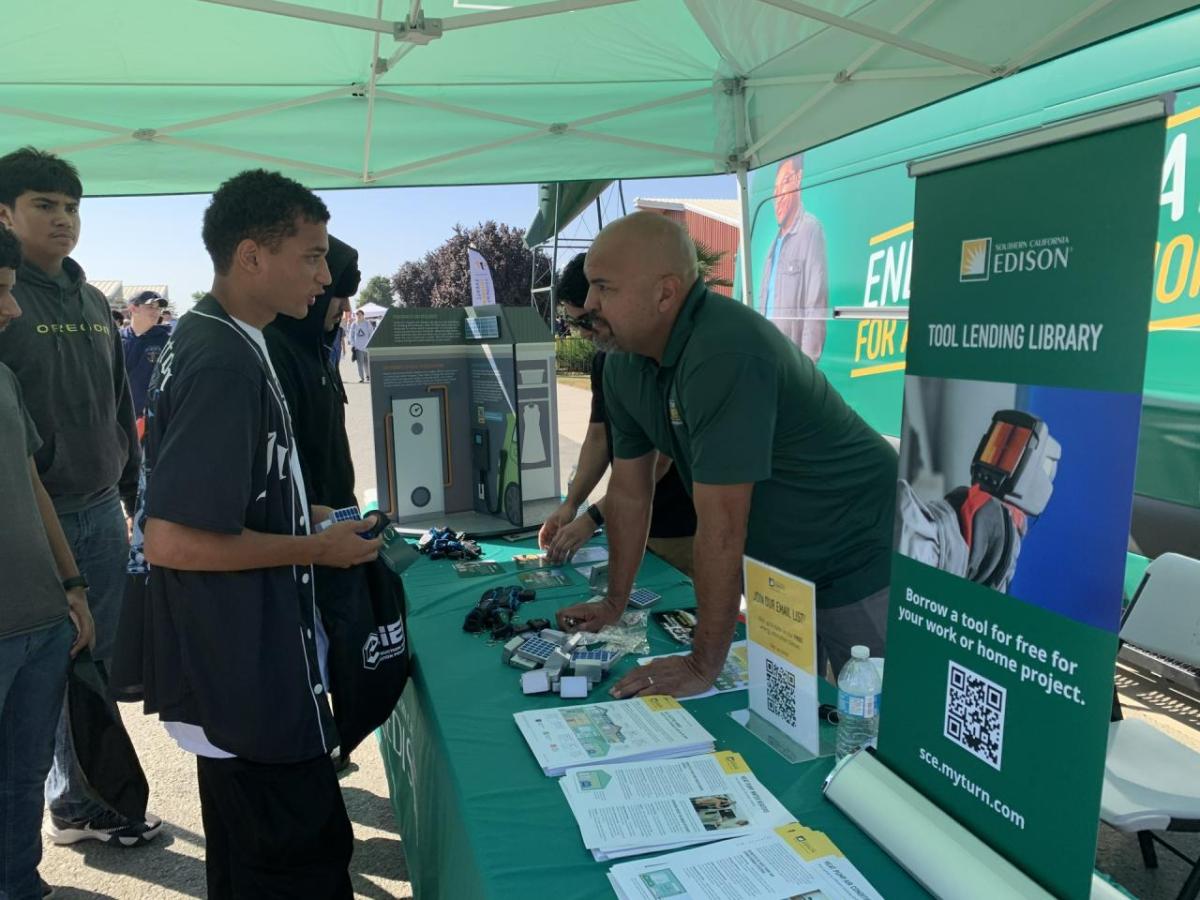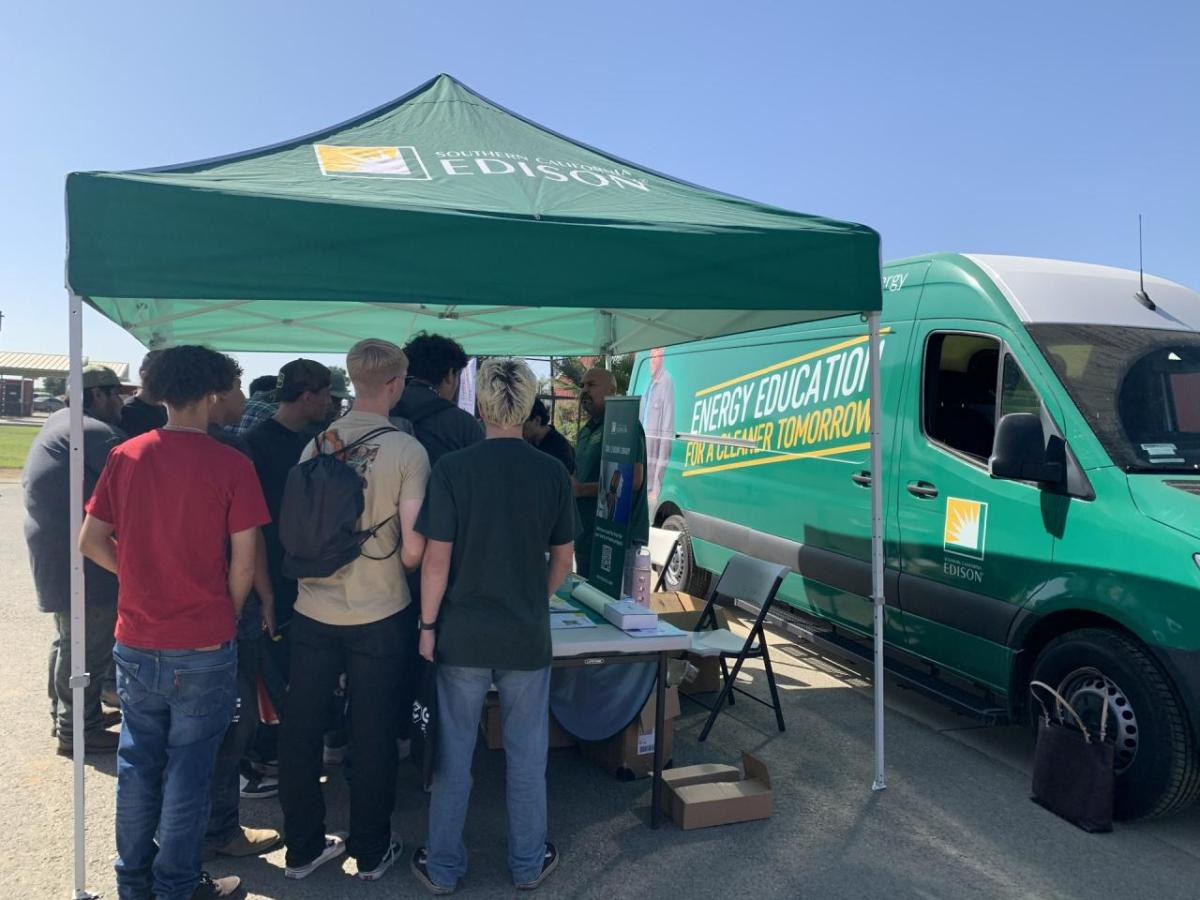Taking Clean Energy Education on the Road
SCE’s Mobile Education Unit program helps rural communities participate in the clean energy transition.
As we move closer to 2045 — the date California by law must achieve net-zero greenhouse gas emissions to avert the worst effects of climate change — the state must act now to accelerate an economywide clean energy transition.
To support the state’s sweeping decarbonization goals, Southern California Edison maintains that an electrified future will only be sustainable with participation from all Californians and is prioritizing providing underserved communities with equitable access to clean energy resources and job opportunities. SCE’s Mobile Education Unit program is doing just that.
An extension of SCE’s Energy Education Centers, the Mobile Education Unit program takes clean energy education on the road. With its fleet of vehicles, including an electric Ford F-150 Lightning, SCE can travel to the farthest corners of its 50,000-square-mile service area, sharing information on electrification, emerging technologies and clean energy jobs. By meeting hard-to-reach, rural communities where they are, the Mobile Education Unit program encourages customers to be a part of the clean energy transition right from home.
“The goal of the Mobile Education Unit program is to advance clean energy adoption with residential and commercial customers, particularly in disadvantaged communities,” said Lionel Moreno, SCE’s advisor of Customer Programs on conservation and efficiency. “It’s important that we help educate rural communities about clean energy so they can also benefit from this transition.”
The Mobile Education Unit program launched last year and has since become a fixture at local job and resource fairs, school events, home shows and community celebrations. Recently, the program partnered with the Construction Industry Education Foundation, connecting SCE staff with middle- and high-school students interested in pursuing careers in the energy industry. It’s a much-needed resource that can set students on a path to success.
“We partner with industry leaders like SCE to build on workforce development across all trades,” said Dustin Hildebrand, the foundation’s Southern California youth program coordinator. “Areas from Porterville to Los Angeles need access to education, and we strive to give students the opportunity to explore different career fields.”
Access to resources is equally at the core of the Mobile Education Unit program’s partnership with Food Link of Tulare County. The nonprofit hosts food distributions around the county, serving between 100 and 200 people each time, mostly farmworkers and English language learners. The Mobile Education Unit program participates in the distribution events by distributing flyers, answering questions and providing information. For many, engaging with the Mobile Education Unit program in their community is their introduction to clean energy.
“A lot of the people we encounter are often grateful just to have someone to talk to about programs that can help them conserve energy and save on their bill,” said Moreno.
With each community partnership, the Mobile Education Unit program creates a touch point for people of a wide variety of backgrounds to understand the importance of a decarbonized future, equip them to make better energy decisions and ensure that they, too, prosper from a cleaner California.
Have you missed the Mobile Education Unit program in your community? Register for free online workshops at the Energy Education Center here.
Learn more about clean energy at edison.com/cleanenergy.




